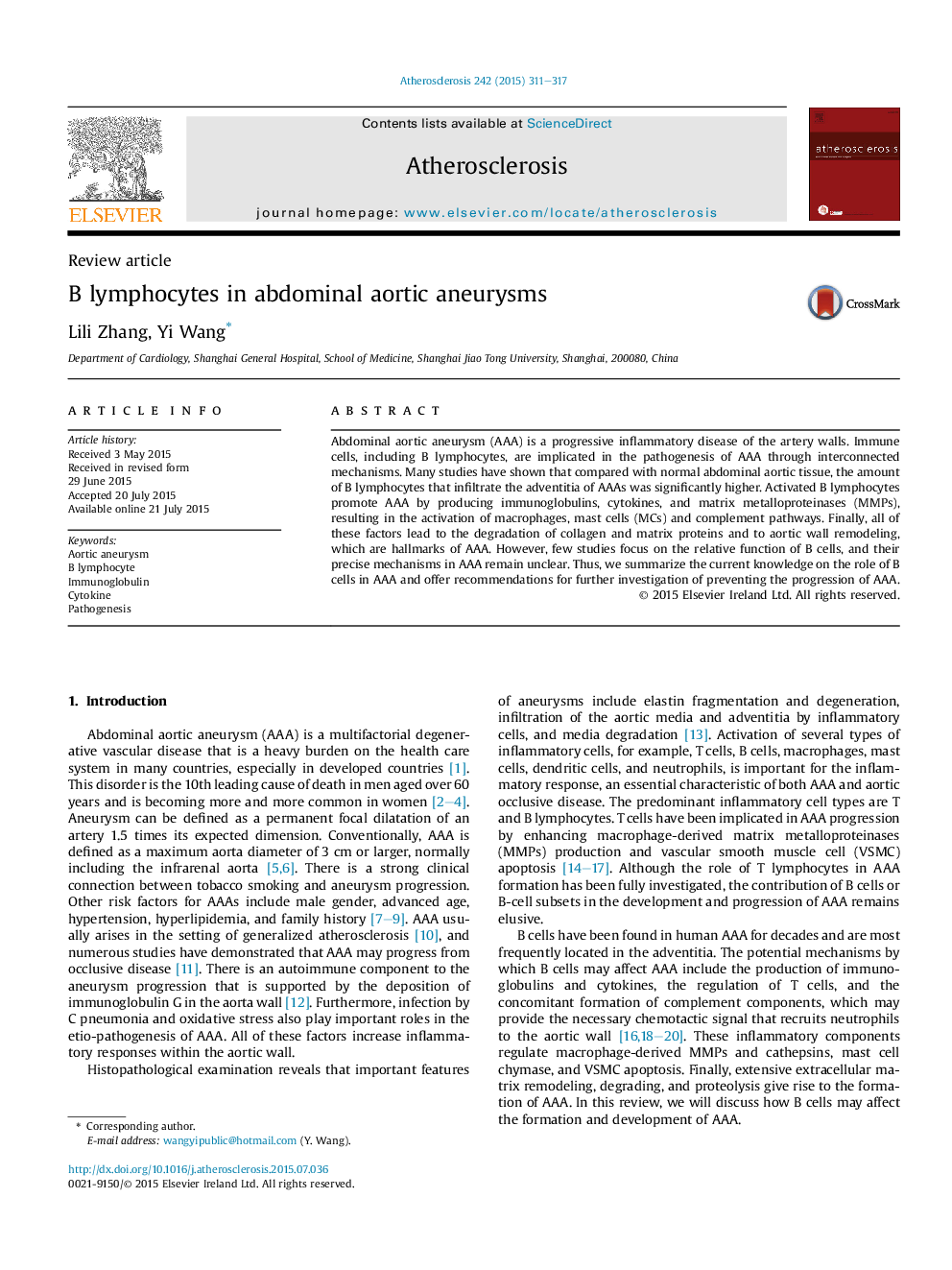| Article ID | Journal | Published Year | Pages | File Type |
|---|---|---|---|---|
| 5943992 | Atherosclerosis | 2015 | 7 Pages |
â¢Little paper investigates the role of B cells in the abdominal aortic aneurysm (AAA).â¢B cells may affect AAAs through producing immunoglobulins (Igs) and cytokines.â¢Igs activate convertases through the complement pathway.â¢The convertases and cytokines activate macrophages and mast cells which promote AAA.
Abdominal aortic aneurysm (AAA) is a progressive inflammatory disease of the artery walls. Immune cells, including B lymphocytes, are implicated in the pathogenesis of AAA through interconnected mechanisms. Many studies have shown that compared with normal abdominal aortic tissue, the amount of B lymphocytes that infiltrate the adventitia of AAAs was significantly higher. Activated B lymphocytes promote AAA by producing immunoglobulins, cytokines, and matrix metalloproteinases (MMPs), resulting in the activation of macrophages, mast cells (MCs) and complement pathways. Finally, all of these factors lead to the degradation of collagen and matrix proteins and to aortic wall remodeling, which are hallmarks of AAA. However, few studies focus on the relative function of B cells, and their precise mechanisms in AAA remain unclear. Thus, we summarize the current knowledge on the role of B cells in AAA and offer recommendations for further investigation of preventing the progression of AAA.
